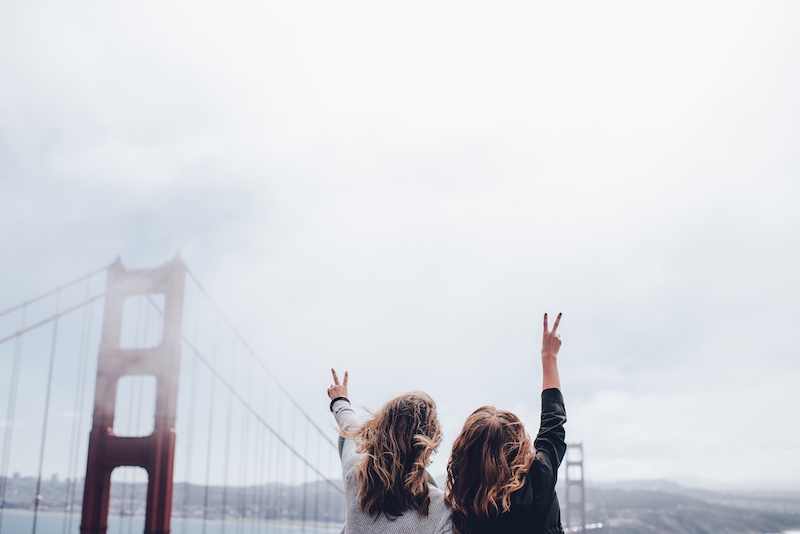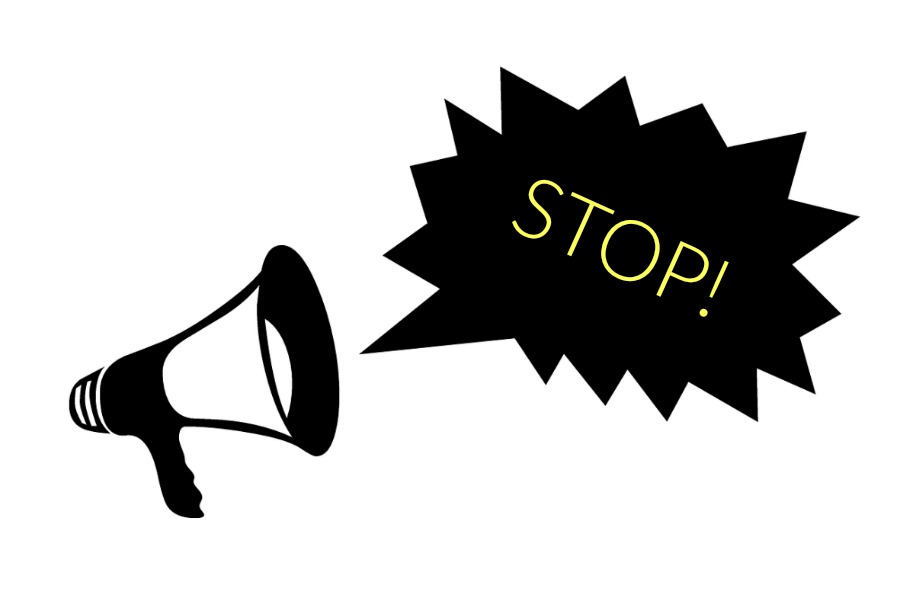This weekend, Senator Ben Sasse issued a response to address the (rightful) outrage around his Friday night appearance with Bill Maher. He stated that he should have spoken up when Maher unacceptably used the N-word. He tweeted that “just cringing last night wasn’t good enough.”
(Whether or not he looked to be cringing is up for debate, but I’ll take his word for it that he was cringing on the inside.)
Only a few weeks before, Billy Bush finally broke his silence about the infamous Access Hollywood tape on which the president bragged about sexually assaulting women. Bush told The Hollywood Reporter, “if a moment like that rose again, I would have shut it down quickly…looking back on what was said on that bus, I wish I had changed the topic.”
I won’t go into some of the horrific things I saw and heard at political rallies over the past year that were broadcast live on television without condemnation.
This is a pattern. And our kids are watching.
Related: 9 lovely children’s books to help encourage more kindness and empathy.
It’s not just a pattern of people — including a lot of public figures — saying awful, derogatory things to other people, using offensive words intended to diminish their humanity. That goes without saying.
But there is a pattern of others just sitting by idly, and not calling it out.
We should know better.
We have come such a long way since I was a kid, when offensive jokes about people from other countries, other races, other religions were not only common, they were likely passed down from big siblings, parents, uncles and grandparents.
I was remember being mortified the day my mother caught wind of one, sat me down, and sternly admonished, “make moron jokes if you want to. Why did the moron…? Don’t make jokes about people from Poland. Imagine how you would feel if you were from Poland and everyone thought you were stupid”
I didn’t think I knew any people from Poland. I didn’t even know where Poland was on a map. It was just…something everyone said.
It hadn’t struck me to consider that some horrible joke about not being able to change a lightbulb would actually be hurtful to a real person somewhere. And I certainly hadn’t imagined that at some point, I could have laughed at that same horrible joke in front of a friend whose last name was some variation of Novack or Wozniak or Jablonowski and what that might have felt like to them.
I was seven.
I was so ashamed.
I still feel pangs of it today, just recalling some of the ugly “humor” from my childhood.
Me Chinese, me play joke…
Admittedly I am absolutely nauseated and embarrassed just to write those words here; I’ve deleted them and repasted them multiple times.
I’ll keep them up. I own this.
The way it’s hard to see ourselves in our own baby pictures, it’s hard to see myself as a little kid whispering terrible jokes in the playground. Was that really me who said those kinds of things? Why did no one ever speak up? How could we not have known better? Could I have really been the kind of person who would say such cruel things…for a laugh?
Yeah. I was. A lot of us were. Maybe you were too.
Now we know better. Or we’re supposed to.
Retarded is not an acceptable insult. The opposite of athletic is not “gay.” Running like a girl is not an insult.
We know that fat-shaming kids can be incredibly harmful. And we’re all discussing — again — that the N-word is absolutely 100% not okay in the mouths of white people. Zeba Blay describes it here perfectly.
Oprah has explained it pretty succinctly too.
So let’s assume we’re all fairly enlightened around here, decent if flawed parents who want to do right by our children and other humans in the world. It’s not enough just to keep hurtful words out of our own mouths — we have to say something when we hear those words from other people too.
Even and especially when it’s hard. Even and especially when it’s public.
We have to.
Or the cycle keeps going.
Related: Wonder: The most amazing book to teach kids about empathy
I know it’s easier to go along to get along; to just smile and nod or change the subject when the proverbial racist uncle says something offensive during Thanksgiving dinner.
Maybe we’re scared that the cruelty will then turn to us. (Sometimes it does.) Maybe as women it’s been ingrained in us to be gracious, keep the peace. (Not that that’s an excuse.) Maybe we just want to skip over uncomfortable moments quickly. Or maybe we’re just so shocked, our brains freeze up and we simply can’t come up with the right words.
Even Senator Sasse, a seasoned media pro and public figure, tweeted that he wishes he would have been quick enough to say [something] in the moment.
If I look for a silver lining, I take his response as a sign of progress in a way; that unlike my second-grade self, today when we hear things that are hurtful and wrong, we know it right away. Which means now what’s left is for us to call it out.
Loudly and without apology.
After all, don’t we tell our kids to stand up for friends who are being bullied? We tell them to alert a teacher if a child is taunting another child with racial slurs, or if they see an ugly symbol or hateful expression etched into a desk at school. We tell them to come to us if someone ever tells them that all Blacks are _____ or all Jews are ____ or all Mexicans are ____. We tell them it’s okay to look at a friend, even a good friend, and say, “hey! That language is not okay with me!” and that we’ll have their backs.
We tell them to be brave.
Adults: Now it’s our turn.

Photo: Ian Schneider for Unsplash



